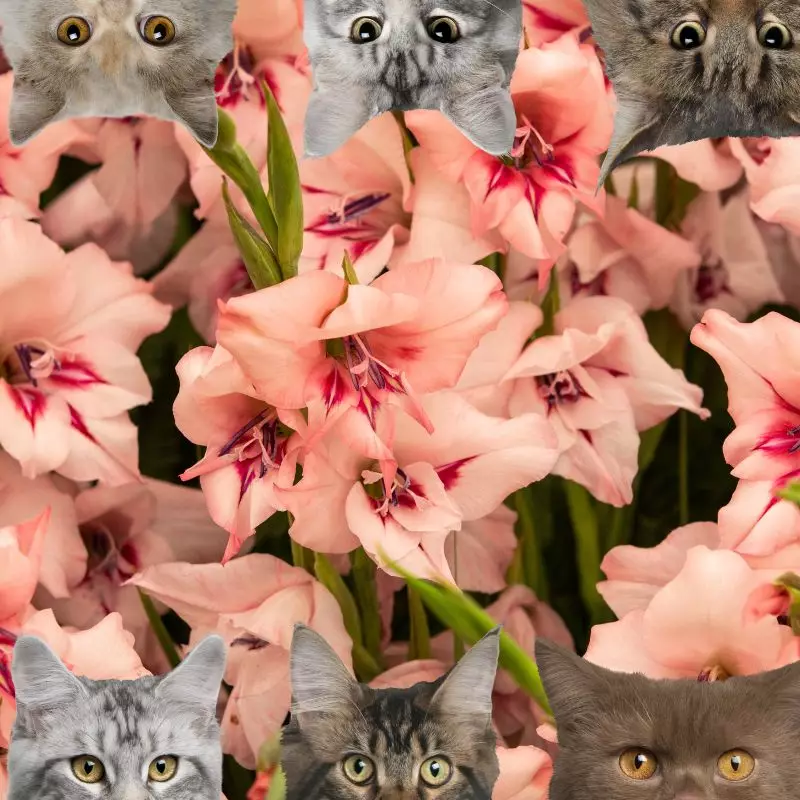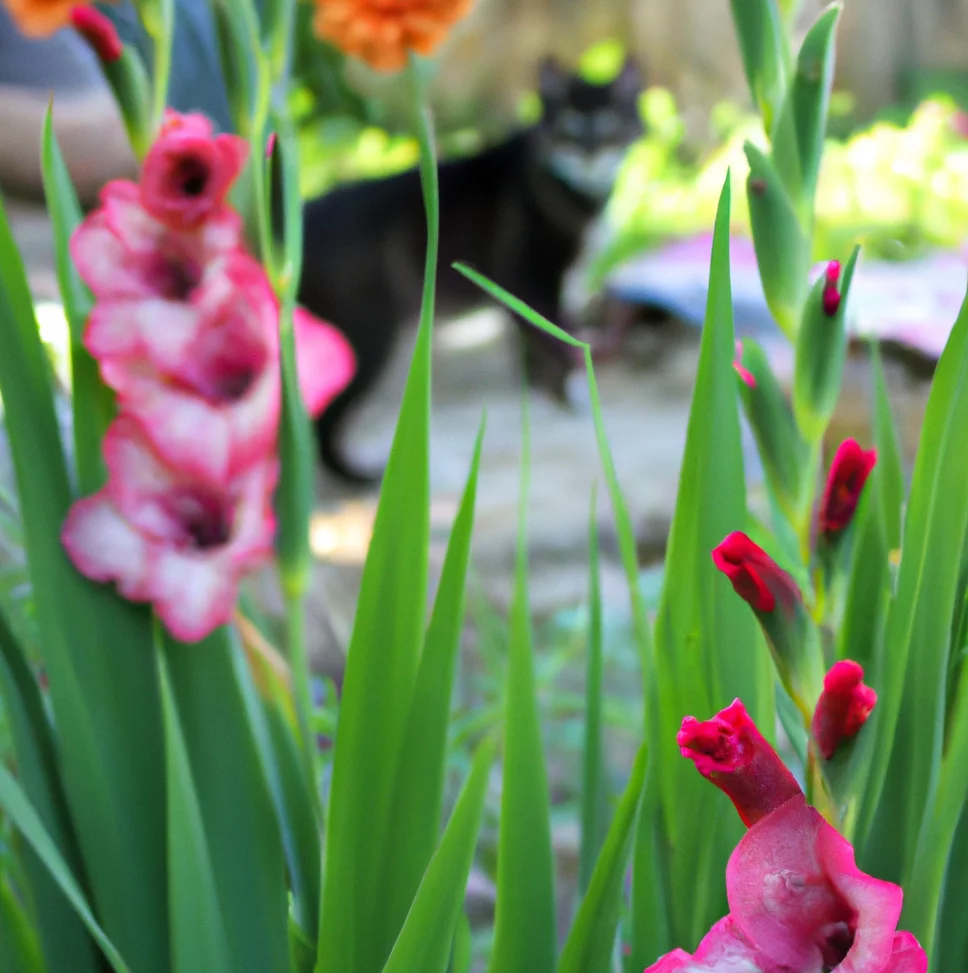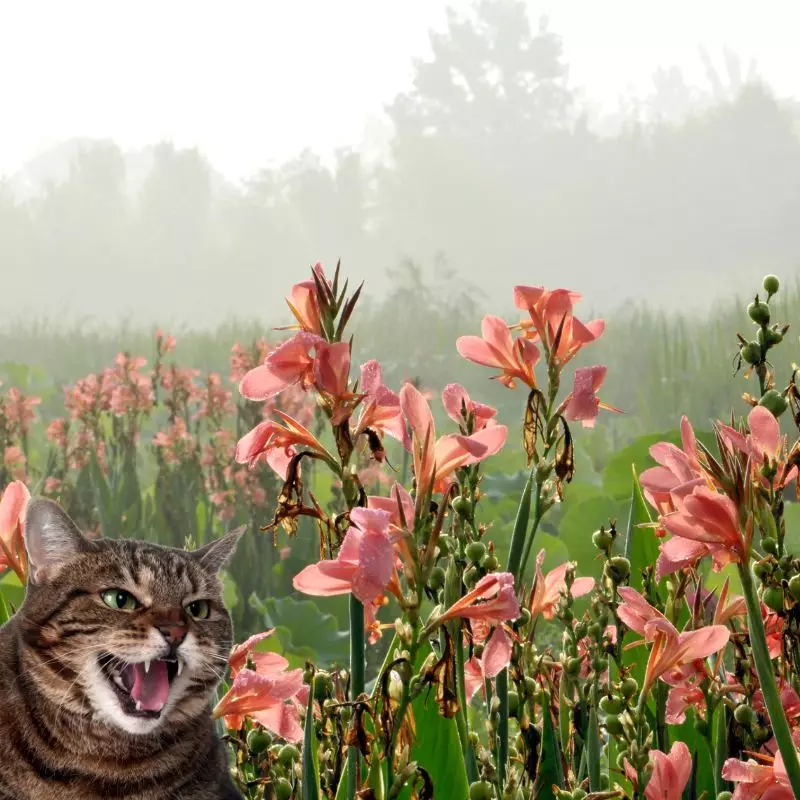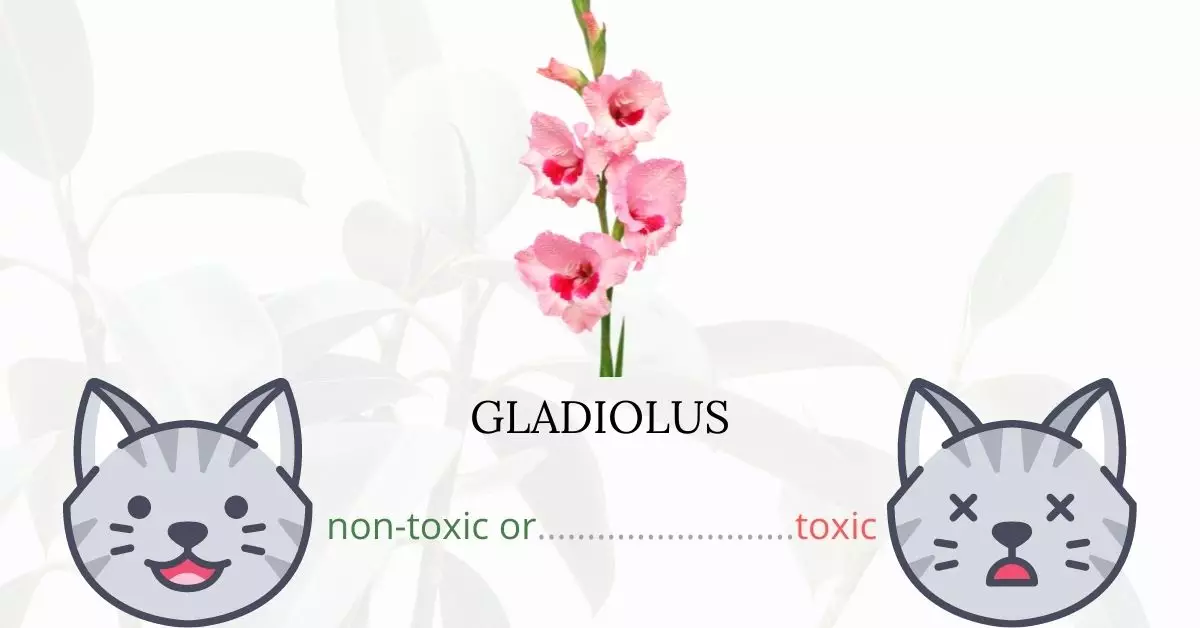Yes, Gladiolus, commonly known as Sword Lily, is toxic to cats. When ingested, even in small amounts, it can lead to gastrointestinal symptoms. In larger quantities, it has the potential to cause cardiac, liver, and kidney malfunction. If a cat exhibits any related symptoms, it’s crucial to consult a veterinarian promptly to prevent severe complications.
This article was crafted in close collaboration with a team of experienced DVMs (doctors of veterinary medicine). With their valuable insights, we provide accurate and up-to-date information about the dangers of various plants, focusing on Gladiolus in this context. Additionally, our findings are reinforced by extensive research from high-authority websites such as ASPCA and PetMD.
Clinical Signs of Gladiolus or Sword Lily Poisoning in Cats

When cats come into contact with, smell, or consume parts of the Gladiolus plant—particularly the bulb—they can exhibit various clinical signs. Here’s a detailed look at these symptoms and the reasons behind their manifestation:
- Loss of Appetite: The toxins from the Gladiolus plant may upset a cat’s stomach, leading to a reduced desire to eat.
- Halitosis: As a result of gastrointestinal disturbances, cats might develop foul-smelling breath.
- Diarrhea (sometimes with blood): The plant’s toxins irritate the digestive tract, which can result in diarrhea. The irritation can be severe enough to cause bloody stools.
- Vomiting: Due to the body’s attempt to rid itself of the ingested toxins, vomiting may occur.
- Excessive Salivation: This is a common response when cats taste or ingest something unpleasant or toxic.
- Dehydration: Vomiting and diarrhea can lead to rapid loss of fluids, causing dehydration.
- Lethargy: A general sense of malaise due to the body’s response to the toxins may make the cat less active or responsive.
- Seizures: Extreme cases of poisoning may affect the cat’s neurological system, leading to seizures.
- Dark color or blood in urine: The toxins may negatively impact the kidneys, causing blood or dark discoloration in the urine.
- Jaundice: Liver damage or dysfunction from the toxins can lead to jaundice, which is a yellowing of the eyes and skin.
- Convulsion: Like seizures, convulsions are a severe neurological symptom indicating significant toxicity.
- Arrhythmia: The heart might be affected, leading to irregular heartbeats or arrhythmias.
- Collapse: In severe cases, the combined strain on the cat’s organs and systems can lead to sudden collapse.
It’s crucial for cat owners to be vigilant and seek veterinary care immediately if any of these symptoms are observed after their pet has come into contact with the Gladiolus plant.
First Aid and Treatment of Gladiolus or Sword Lily Poisoning in Cats

To help remove any remaining gladiola in your cat’s system, your vet will have to induce vomiting in your cat. After that, your cat may need to have a gastric lavage or receive activated charcoal. An IV can be started to supply much-needed fluid to your cat, and it can be left to rehydrate your cat for a few hours or even overnight.
Medications such as famotidine and sucralfate can be prescribed to your cat to protect your cat’s gastrointestinal tract. The vet will also monitor your cat’s liver, kidneys and heart function.
Recovery from Gladiolus or Sword Lily Poisoning in Cats

If your cat was given appropriate treatment in a timely manner, he or she will get better soonest. Severe gladiola poisoning cases may require strict observation by the veterinarian and recovery may take a bit longer. Discuss your cat’s post-treatment care with your veterinarian.
Prevention of Gladiolus or Sword Lily Poisoning in Cats
Avoid putting gladiola inside your home and growing them in your gardens. If you receive one as a gift, it is best to re-gift it to someone who do not have animal companions at home. Minimize your cat’s outdoor activities to lessen his or her risk of exposure to gladiola and other poisonous plants in your neighborhood.
If you love plants but have cats at home, check out these lists:





